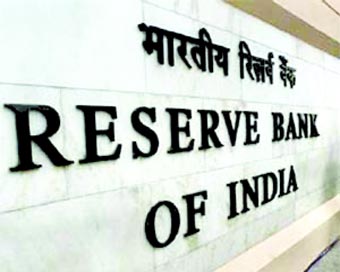 PM Modi visit USA
PM Modi visit USA Only the mirror in my washroom and phone gallery see the crazy me : Sara Khan
Only the mirror in my washroom and phone gallery see the crazy me : Sara Khan Karnataka rain fury: Photos of flooded streets, uprooted trees
Karnataka rain fury: Photos of flooded streets, uprooted trees Cannes 2022: Deepika Padukone stuns at the French Riviera in Sabyasachi outfit
Cannes 2022: Deepika Padukone stuns at the French Riviera in Sabyasachi outfit Ranbir Kapoor And Alia Bhatt's Wedding Pics - Sealed With A Kiss
Ranbir Kapoor And Alia Bhatt's Wedding Pics - Sealed With A Kiss Oscars 2022: Every Academy Award Winner
Oscars 2022: Every Academy Award Winner Shane Warne (1969-2022): Australian cricket legend's life in pictures
Shane Warne (1969-2022): Australian cricket legend's life in pictures Photos: What Russia's invasion of Ukraine looks like on the ground
Photos: What Russia's invasion of Ukraine looks like on the ground Lata Mangeshkar (1929-2022): A pictorial tribute to the 'Nightingale of India'
Lata Mangeshkar (1929-2022): A pictorial tribute to the 'Nightingale of India' PM Modi unveils 216-feet tall Statue of Equality in Hyderabad (PHOTOS)
PM Modi unveils 216-feet tall Statue of Equality in Hyderabad (PHOTOS)Hockey India has announced a 54-member core probable squad for the upcoming senior men’s
- Satwik-Chirag return as BAI names 14-strong squad for BWF Sudirman Cup Finals 2025
- Men’s Sr Hockey Nationals to be played in division-based format from April 4
- Mensik denies Djokovic 100th title in Miami final
- KIPG: Son of a vegetable vendor, Bihar’s Jhandu Kumar eyes Worlds, 2028 Paralympics
- Hardik Singh credits hard work and team unity for receiving HI Midfielder of the Year award
Change in RBI Act, new law may be needed for PCR: RBI Last Updated : 20 Aug 2018 11:48:20 PM IST 
Reserve Bank of India The government may need to amend the Reserve Bank of India Act of 1934 and also bring a special law vis-a-vis setting up of the Public Credit Registry (PCR) to revolutionise the credit sector, an RBI official said on Monday.
RBI Deputy Governor Viral V. Acharya said that the PCR is being set up within the existing RBI infrastructure and the government may have to amend the Act if rules made thereof made things difficult for the central bank.
"Otherwise, the Reserve Bank of India Act can be suitably amended to confer on the bank the powers to conduct the PCR business," Acharya said at the Annual Global Banking Conference organised by FICCI and Indian Banks Association.
"Such specific conferment of power, with clear enumeration of the PCR functions, will remove the limitations of incidental powers...," he said.
Speaking on how PCR and Goods and Services Tax Network (GSTN) can democratise and formalise credit in India, he said that the credit-to-GDP ratio in India stands at a modest 55.7 per cent compared with China's 208.7 per cent and the UK's 170.5 per cent.
"Now, the PCR can aggregate the information of a borrower by using the core credit information repository and information lying in a set of sub-systems spread across multiple agencies (like GSTN) to aggregate the information of a borrower," Acharya said.
Further, he said, as the PCR will have to get information from different sources and as the confidentiality provisions in many enactments will directly or indirectly bar sharing of information, including credit information, a special overriding law may be needed.
"... it is desirable to have a special comprehensive legislation, overriding the prohibitions contained in all other legislations on sharing of information required for the PCR. Otherwise, all such legislations will have to be amended separately, providing an exemption on the sharing of information with PCR," the Deputy Governor said.
Acharya said that an Implementation Task Force has now taken over the job of steering the project conceptualised in 2017. Once the infrastructure is in place, it will be feasible to serve a large number of customers at a much lower transaction size.
"Just like in the Fast-moving Consumer Goods sector, banking and access to credit too will be ‘sachetized'... we want that even a small tea-shop owner should be able to take a 500-rupee loan at fair rates, say for only a week, based on such data."IANS For Latest Updates Please-
Join us on
Follow us on








172.31.16.186







